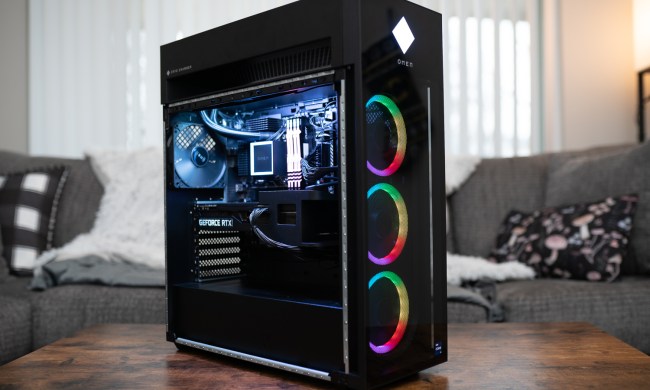
It’s a good thing computer maker Gateway has never been known for its innovative industrial design, because it wouldn’t be taking home any honors for its updated E-2610 line of small form factor desktop PCs. But then again, these machines aren’t designed to be trend setting or exciting: they’re designed to by deployed in bulk by large business, governmental, and educaitonal institutions and offer cost-efficient, reliable mainstream computing capability.
“The Gateway E-2610 is a small form factor desktop that provides high-end performance and system flexibility at a great value,” said Steve Bulling, senior group desktop product manager for Gateway, in a release. “Our customers appreciate that this system can be tailored to fit any business environment through the choices we offer in processors, drives, and the BTX chassis.”
Gateway’s new E-2610s are optimized for Windows Vista and are built using the INtel 945G chipset. The systems sport a choice of Intel Core 2 Duo processors, three case options (two three-bay desktops, one six-bay minitower), and a choice of hard drive capacities. The systems also bring gigabit Ethernet with Alert Standard Format 2.0 support, so PCs can alert IT departments about problems, and staff can diagnose and repair the system using standard management consoles. A Trusted Platform Module helps keep documents and network communications secure in large, centrally managed IT infrastructures.
Gateway is offering the new E-2610s at prices starting at $599; as usual, Gateway hasn’t updated its product pages yet, so if you see Pentium-based Windows XP systems under this model number at higher prices…hold off a little bit.


